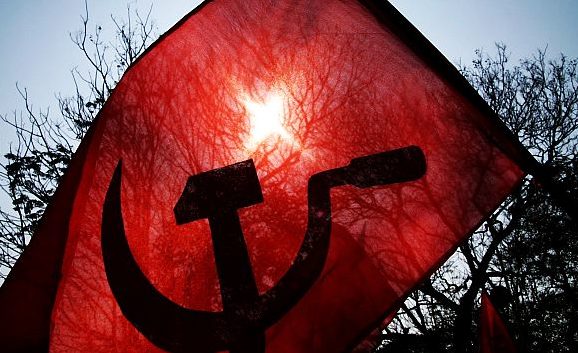
Why Communists Failed To Bring A Revolution Despite Struggling For Almost A Century In India
The concept of revolution is dynamic, it changes as the nature of the society changes, therefore every ideology holds different concept of revolution so we can’t generalize the idea of revolution by seeing from one’s lens, however in the context of communism the idea of revolution can be equated with about making classless society, where there will no ruling class oppressing other.
The idea of revolution which communism holds is too powerful that Cuba took only 6 years under the Marxist leadership of Fidel Castro and Ernesto Guevara to overthrow the U.S backed military dictator Fulgencio Batista or in simply it can be called U.S imperialism. One can argue that on the demographic structure Cuba is too small as compared to India, but at the same time it was also true that after dropping almost 270 bombs on the land of Laos by Americans the communism flourished, eventually, the point is whether it was Russian revolution or any other revolution, it succeeds after struggling for three to four decades, but in the Indian context communist parties struggling for almost 95 years they don’t even success to mobilized the proletariat rather they are isolated day by day from them. Indian communist have neglected the question of caste, they often emphasized on class struggle which is mainly an economic struggle, they often viewed the caste question as dividing the society and they failed to know that who the oppressed are when the first Naxal “Kanu Sanyal” met Mao, the only suggestion he gave to Sanyal was the Revolution only comes when you visualize the ground realities of the society, in India, the peoples are already divided into several castes for the long years and lower caste always the ones who were and remain the most oppressed for centuries, recognizing caste would result in uniting the society, the communist parties must fight the higher caste prejudice in society to establish equality which will eventually or most probably result in classless society.
The real communist struggle should not be confined only to the economic struggle but it should be political as well as social struggle, as it is the struggle between oppressed and their oppressor, and in India, the “means of production” was always dominated by the upper caste people, so the communist must be emphasized on seizure of economic and political powers from the upper caste in rural India, the struggle for political power involves the smashing of the feudal and caste authority in rural India and also the setting up of new bodies where the higher castes are not allowed to dominate or oppress the working class.
Indian communists did not view the agrarian struggle as primarily anti-feudal (feudalism is totally based on caste) and so did not view the significance of attacking the caste system oppression as part of the anti-feudal struggle, secondly, due to their reformist governmental issues and their inundation in economic battles and constituent struggle caste atrocities was not just refuted however forgotten about, as the main part of the composed labourers are from the upper caste and the greatest vote banks are additionally from the upper castes, and lastly because of a mechanical linking between the base and superstructure they did not feel the need to fight casteist outlook and maintained that common economic struggles will automatically bring together all castes and remove the caste bias. Ideologically they replaced dialectical materialism with mechanical materialism and assumed a one-to-one relationship between the base and the superstructure by further maintaining that with the transformation into socialist society all caste biases will automatically disappear. Influenced by the ‘theory of productive forces’ whereby they maintained that social relations of production will automatically change with the development of the productive forces.
The Indian communist must be emphasized on dismantling upper caste prejudice in Indian societies and most importantly within their organization.
Indeed, the Bhaujan proletariat will bring the REVOLUTION.
Jai Bhim.
The author could be reached on Twitter at @ambedkarite09



+ There are no comments
Add yours